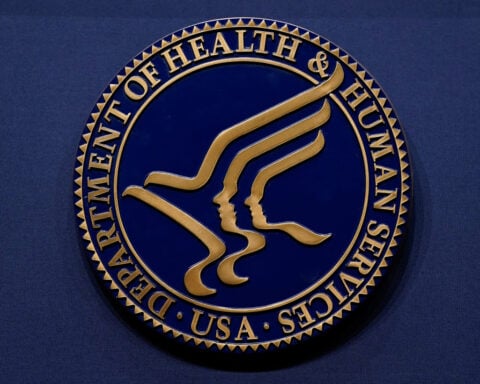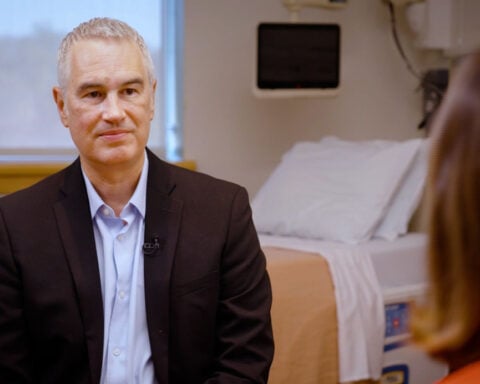New research suggests semaglutide, marketed as Ozempic for diabetes and Wegovy for obesity, could help people reduce their alcohol consumption.
The study, published in JAMA Psychiatry and led by a University of Southern California investigator, found that weekly injections of semaglutide decreased alcohol craving and consumption compared to placebo treatments.
The clinical trial provides scientific validation for what many patients and physicians have observed anecdotally since these medications became widely used: individuals taking semaglutide often experience a diminished desire for alcohol.
“This is the first randomized, placebo-controlled clinical trial of semaglutide designed to study the phenomenon,” said Christian Hendershot, the study’s first author, and director of clinical research at USC’s Institute for Addiction Science.
The findings could address a significant treatment gap in public health. Alcohol contributes to an estimated 178,000 deaths annually in the United States and is associated with liver disease, cardiovascular problems, and cancer, according to the U.S. Surgeon General. Nearly one-third of American adults have experienced drinking problems at some point, yet treatment utilization remains low.
For the trial, researchers recruited 48 adults diagnosed with alcohol use disorder who were not actively seeking treatment. Participants had consumed more than seven drinks weekly (for women) or more than 14 drinks weekly (for men), with at least two heavy drinking episodes during the study period.
The experimental design included a pre-treatment drinking session in a comfortable laboratory setting, followed by nine weeks of either low-dose Ozempic or placebo injections. Researchers tracked weekly drinking patterns throughout the study period and concluded with another laboratory drinking session to measure changes.
Results showed participants receiving semaglutide experienced reduced weekly alcohol cravings and consumed fewer drinks on days when they did drink compared to the placebo group. The medication also led to greater reductions in heavy drinking days.
Notably, the effectiveness of semaglutide appeared stronger than many existing medications for alcohol cravings despite being administered at the lowest clinical doses. By the second month of treatment, those in the semaglutide group had reduced their alcohol consumption on drinking days by nearly 30%. In comparison, the placebo group showed only about a 2% reduction.
The medication’s effects strengthened with increasing doses. Additionally, almost 40% of participants in the semaglutide group reported no heavy drinking days during the second treatment month, compared with 20% in the placebo group.
“These data suggest the potential of semaglutide and similar drugs to fill an unmet need for the treatment of alcohol use disorder,” said senior author Klara Klein of the University of North Carolina School of Medicine. “Larger and longer studies in broader populations are needed to fully understand the safety and efficacy in people with alcohol use disorder, but these initial findings are promising.”
Semaglutide belongs to a class of medications called GLP-1 receptor agonists. The study results justify larger investigations of these drugs for alcohol use disorder, according to Hendershot, who is also a professor at Keck School of Medicine of USC.
The research team noted that the popularity of semaglutide and similar medications might increase the likelihood of widespread adoption if they receive approval for treating alcohol use disorders. Currently, approved medications for alcohol use disorder are not widely utilized.
An unexpected finding emerged among participants who smoked cigarettes at the beginning of the study. Those who received semaglutide showed significantly greater reductions in daily cigarette consumption compared to those in the placebo group, suggesting the medication might reduce both alcohol and nicotine use.
While these initial results appear promising, Klein emphasized the need for “larger and longer studies in broader populations” to fully understand the safety and efficacy of semaglutide for people with alcohol use disorder.

 Trump has begun another trade war. Here's a timeline of how we got here
Trump has begun another trade war. Here's a timeline of how we got here
 Canada's leader laments lost friendship with US in town that sheltered stranded Americans after 9/11
Canada's leader laments lost friendship with US in town that sheltered stranded Americans after 9/11
 Chinese EV giant BYD's fourth-quarter profit leaps 73%
Chinese EV giant BYD's fourth-quarter profit leaps 73%
 You're an American in another land? Prepare to talk about the why and how of Trump 2.0
You're an American in another land? Prepare to talk about the why and how of Trump 2.0
 Chalk talk: Star power, top teams and No. 5 seeds headline the women's March Madness Sweet 16
Chalk talk: Star power, top teams and No. 5 seeds headline the women's March Madness Sweet 16
 Purdue returns to Sweet 16 with 76-62 win over McNeese in March Madness
Purdue returns to Sweet 16 with 76-62 win over McNeese in March Madness








